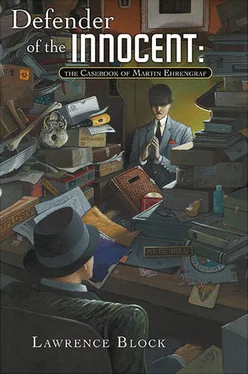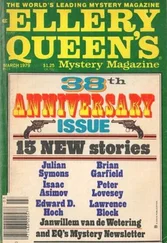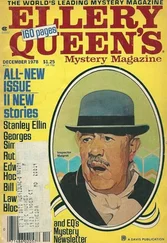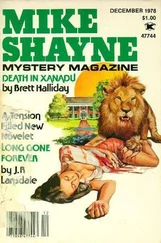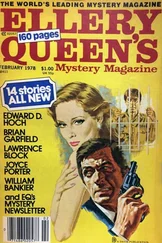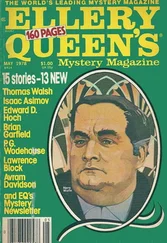Lawrence Block - The Ehrengraf Fandango
Здесь есть возможность читать онлайн «Lawrence Block - The Ehrengraf Fandango» весь текст электронной книги совершенно бесплатно (целиком полную версию без сокращений). В некоторых случаях можно слушать аудио, скачать через торрент в формате fb2 и присутствует краткое содержание. Год выпуска: 2014, ISBN: 2014, Издательство: Subterranean, Жанр: Детектив, на английском языке. Описание произведения, (предисловие) а так же отзывы посетителей доступны на портале библиотеки ЛибКат.
- Название:The Ehrengraf Fandango
- Автор:
- Издательство:Subterranean
- Жанр:
- Год:2014
- ISBN:978-1-59606-667-0
- Рейтинг книги:5 / 5. Голосов: 1
-
Избранное:Добавить в избранное
- Отзывы:
-
Ваша оценка:
- 100
- 1
- 2
- 3
- 4
- 5
The Ehrengraf Fandango: краткое содержание, описание и аннотация
Предлагаем к чтению аннотацию, описание, краткое содержание или предисловие (зависит от того, что написал сам автор книги «The Ehrengraf Fandango»). Если вы не нашли необходимую информацию о книге — напишите в комментариях, мы постараемся отыскать её.
The Ehrengraf Fandango — читать онлайн бесплатно полную книгу (весь текст) целиком
Ниже представлен текст книги, разбитый по страницам. Система сохранения места последней прочитанной страницы, позволяет с удобством читать онлайн бесплатно книгу «The Ehrengraf Fandango», без необходимости каждый раз заново искать на чём Вы остановились. Поставьте закладку, и сможете в любой момент перейти на страницу, на которой закончили чтение.
Интервал:
Закладка:
Lawrence Block
The Ehrengraf Fandango
“Love had gone and left me — and the neighbors knock and borrow
And life goes on forever like the gnawing of a mouse,
And tomorrow and tomorrow and tomorrow and tomorrow
There’s this little street and this little house.”
— Edna St. Vincent MillayEhrengraf, wearing a cocoa brown blazer over a pair of cream-colored flannel trousers, stepped gingerly over the threshold and into the little room reserved for attorney-client meetings. In its center stood a table, bolted to the floor, and on either side of the table was a chair, rendered immobile in the same fashion.
A young woman occupied one of the chairs and looked up at the little lawyer’s approach. She was tall and slender, with nut-brown hair framing an oval face that would have delighted Modigliani. Mentally, Ehrengraf supplied her with the color and sparkle of which recent events had deprived her. He could tell that she’d be a beauty.
“Mr. Ehrengraf,” she said.
“Ms. Plumley.”
“Can we talk here?”
“That’s the room’s purpose,” Ehrengraf said. “It’s supposed to be preferable to meeting in a cell.”
“And I suppose it is. But can what we say be heard?”
“I wouldn’t worry about it,” he said.
Which, he thought, was accurate, if not entirely responsive. Sitting in that room, breathing its stale air, Ehrengraf recalled a very different room, one he’d encountered a few years ago when business had called him to New York. There, a pebble’s throw from Carnegie Hall, he dined in a restaurant with an interior designed by the artist Milton Glaser. He recalled patterned tile rugs set into the tiled floor, but more than that he remembered the motif of super-sized representations of the human anatomy, sculpted and hanging on the walls. Here a disembodied nose, there a pair of sculpted lips. And, most memorably, an enormous ear.
The room’s décor was as over-the-top as this room’s was austere, even non-existent. But Ehrengraf imagined its walls covered with ears, thousands of ears, big ears and little ears, all of them listening, for what else did ears do?
But he wouldn’t worry about it.
“Actually,” Cheryl Plumley said, “there’s no reason for me to worry about it. Everyone knows I did it.”
Responses sprang up in Ehrengraf’s mind and dematerialized before they reached his lips. He waited.
“That’s why I insisted they call you,” she went on. “‘You have the right to remain silent. You have the right to an attorney.’ I felt as though I was in a crime show on television. Reading me my rights. I mean, I was ready to change my name to Miranda.”
“You were right to call me.”
“Oh, I knew that was the thing to do. I don’t remember who it was I heard it from, but I’ve never forgotten. ‘If you ever kill somebody, if you’re guilty as sin, the man to call is Martin H. Ehrengraf.’”
“Indeed,” said Ehrengraf, and sighed a small sigh. “It pains me to hear you say that,” he said, “because it could not be further from the truth. My role, Ms. Plumley, is that of defender of the innocent. I have never represented a guilty client.”
Her face, already jailhouse pale, nevertheless managed to lose color. “Then I’ve made a mistake,” she said.
“Not at all.”
“Because if you only represent innocent people—”
“As indeed I do.”
“—then you can’t represent me, can you?”
“Why ever not?”
“Because I’m guilty. Why are you shaking your head?”
“Because I don’t agree. Ms. Plumley, my dear Ms. Plumley, I know you to be innocent.”
“Innocent,” said Cheryl Plumley. “I just learned how much I want to believe that. When you said what you said, when I heard those words, a surge of emotion shot through me. And now I don’t know whether to laugh or cry.”
“If you’re not certain,” Ehrengraf said, “it’s probably best to do neither. I’ll say it again, dear lady. I know you to be innocent.”
“How can you? The whole world knows me to be guilty. And yet—”
“Yes?”
“Even though I did it, even though I fired the pistol that killed those people, I could argue that I wasn’t truly responsible for what happened in that house on Woodbridge Avenue. It wouldn’t make any difference in a court of law, and I’m not sure I really believe it myself. But it’s an argument I could make.”
“Then make it.”
She lowered her eyes, then raised them almost defiantly. “Very well,” she said. “The Devil made me do it.”
“Believe me,” Cheryl Plumley said, “I know how that sounds. You must think I’m barking mad.”
Neither barking nor mad, Ehrengraf thought. But possessed of an interesting turn of mind, certainly, and one which presented possibilities.
“I don’t even believe in the Devil,” she went on. “At least I don’t think I do.”
“Unlike the Deity,” Ehrengraf said, “the Devil doesn’t seem to require that one believe in him. One can but wonder why. But let’s put that question aside for the moment, shall we? And why don’t you tell me what happened?”
“I don’t remember everything. I suppose that’s evidence of guilt in and of itself, wouldn’t you say? My guilty conscience must have erased the memory.”
That struck Ehrengraf as rather more of a stretch than believing in the Devil, or even the Tooth Fairy.
“I don’t know where to begin, Mr. Ehrengraf. I woke up that morning, I prepared my own breakfast, I watched a news program on television. I left my house around ten-thirty and drove to my gym, where I took a yoga class from eleven to twelve. I had lunch with a friend at the Hour Glass, and she told me about a shop on Englewood with a good selection of ceramic tiles imported from Italy. I’ve been thinking about doing some renovation and, well, I thought it would be good to see what they had.”
“So you drove there?”
“I must have.”
“But you don’t remember?”
She shook her head. “I remember leaving the restaurant,” she said, “and I remember getting in my car, and then everything’s just gone.”
“Gone.”
“The slate wiped clean. The next thing I knew—”
“Yes?”
“I was in that house.”
“The Kuhldreyer home.”
“Yes, but I didn’t know it at the time. I must have driven past that house dozens of times, it’s right there on Woodbridge between Starin and Voorhees, but I’d never paid any particular attention to it.”
“And you didn’t know the Kuhldreyers.”
“I knew her in high school. Knew who she was, anyway. I don’t think we ever had an actual conversation.”
“Mrs. Kuhldreyer.”
“Not at the time. She was Mary Beth Dooley, and she was two years behind me at Bennett, and she giggled.”
“She giggled.”
“A lot of girls do,” she said, “at that age. That’s about as much as I ever knew about her, and then all of a sudden I was in her house, and I had a gun in my hand.” She looked at her hand, as if it still held the weapon. “It was very heavy,” she said.
“The gun.”
“Yes. It was in my hand, and my finger was on the trigger, and they were all dead.”
“And did you know who they were?”
She shook her head. “I didn’t recognize her,” she said. “Mary Beth. I barely knew her in high school and hadn’t seen her since. And I’d never met him.”
“Richard Kuhldreyer.”
“He was lying on the rug in front of the fireplace,” she said. “I guess he was standing when I shot him, and he fell down there. She was on the sofa, it was one of those Victorian love seats, and I’d shot her once in the face and once in the chest. And then there was another woman.”
Читать дальшеИнтервал:
Закладка:
Похожие книги на «The Ehrengraf Fandango»
Представляем Вашему вниманию похожие книги на «The Ehrengraf Fandango» списком для выбора. Мы отобрали схожую по названию и смыслу литературу в надежде предоставить читателям больше вариантов отыскать новые, интересные, ещё непрочитанные произведения.
Обсуждение, отзывы о книге «The Ehrengraf Fandango» и просто собственные мнения читателей. Оставьте ваши комментарии, напишите, что Вы думаете о произведении, его смысле или главных героях. Укажите что конкретно понравилось, а что нет, и почему Вы так считаете.
